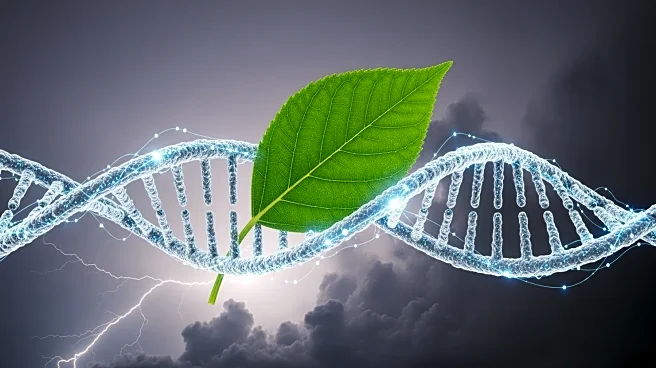What's Happening?
Recent studies have shown that mRNA vaccines, initially developed for COVID-19, may also be effective in treating cancer. In trials, cancer patients receiving mRNA vaccines lived nearly twice as long as those
who did not. This discovery was made accidentally during a trial at the University of Florida. Meanwhile, the World Resources Institute's State of Climate Action 2025 report indicates that global efforts to meet climate goals are falling short. The report highlights failures in reducing deforestation and coal use, among other areas, and stresses the need for urgent action to avoid breaching the 1.5°C global warming threshold.
Why It's Important?
The potential use of mRNA vaccines in cancer treatment could revolutionize oncology, offering new hope for patients and potentially transforming cancer care. This development underscores the versatility of mRNA technology and its potential beyond infectious diseases. On the climate front, the report's findings are a stark reminder of the urgent need for more effective climate policies and actions. Failure to meet climate goals could have severe consequences for global ecosystems and economies, emphasizing the need for immediate and coordinated international efforts.
What's Next?
Further research and clinical trials are needed to confirm the efficacy of mRNA vaccines in cancer treatment and to explore their potential applications. In terms of climate action, the upcoming COP30 conference will be a critical platform for world leaders to address the shortcomings highlighted in the report and to commit to more ambitious climate targets. The outcomes of these discussions could shape global climate policy for years to come.









